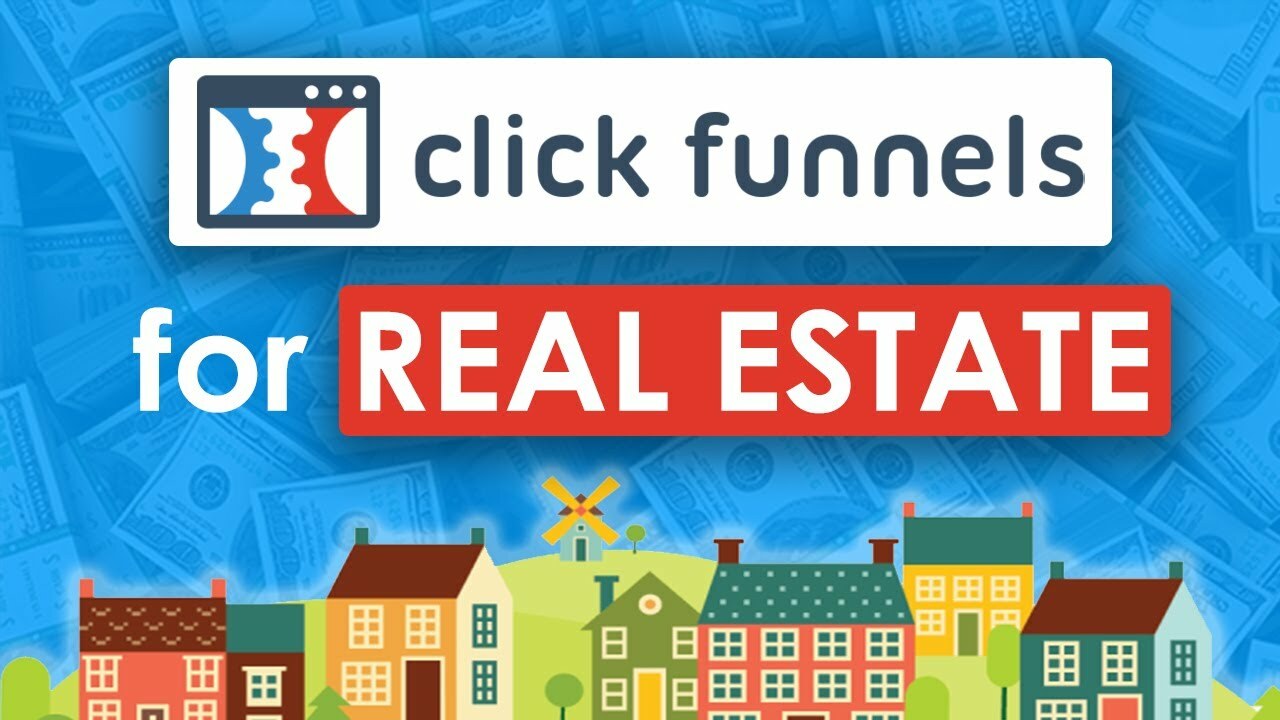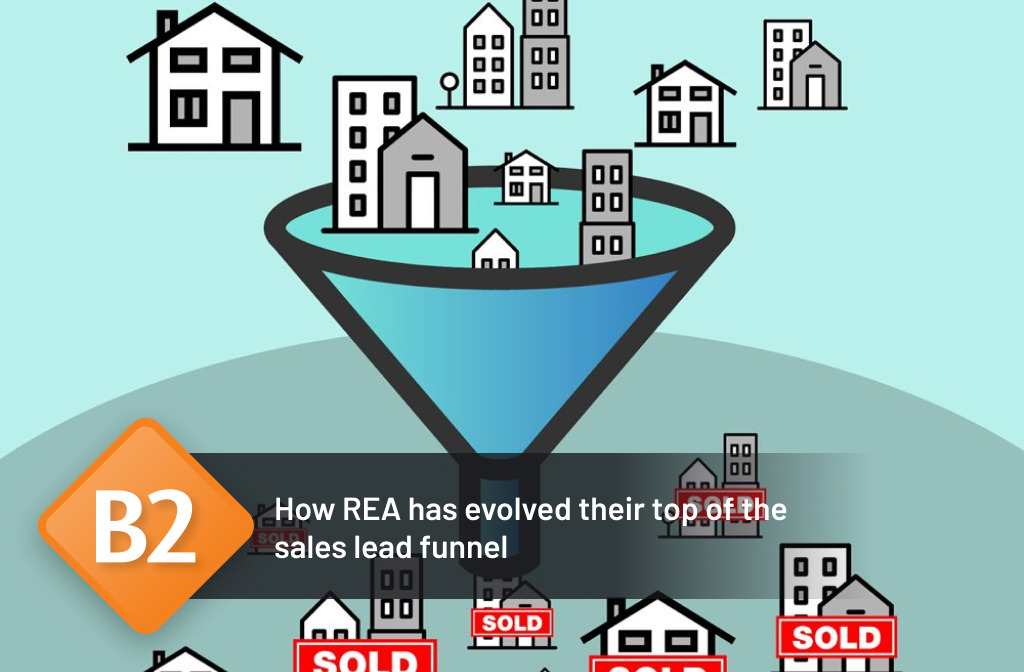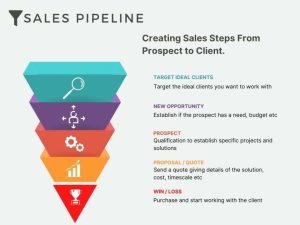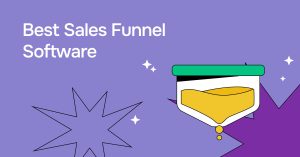Existing customer? Sign in
Sales Funnel for Real Estate: A Complete Guide to Driving Conversions

In the competitive world of real estate, driving conversions and closing deals is paramount to success. With the housing market constantly evolving and buyer behaviors changing, the Sales Funnel for Real Estate professionals must adapt their strategies to effectively reach their target audience and convert leads into clients. This is where the concept of the sales funnel for real estate comes into play. By implementing a well-designed sales funnel and utilizing proven housing market funnel strategies, agents can streamline their process, nurture leads, and ultimately increase conversions. In this comprehensive guide, we will explore the ins and outs of the real estate sales pipeline and provide valuable insights and tips for maximizing your success in the ever-evolving world of real estate. So, whether you’re a seasoned agent or just starting out, read on to discover how to effectively drive conversions and achieve your sales goals in the real estate industry.
Understanding the Importance of a Well-structured Sales Funnel for Real Estate
In the world of real estate, having a well-structured sales funnel is crucial for success. A sales funnel helps agents and brokers track and analyze the entire buyer journey, from initial interest to closing the deal. It provides valuable insights into customer behavior, allowing professionals to make informed decisions and optimize their strategies. Real estate sales funnel analytics play a vital role in identifying trends and patterns that can lead to higher conversion rates. By analyzing data such as website traffic, lead sources, and lead quality, agents can pinpoint the most effective marketing channels and adjust their efforts accordingly. These analytics enable professionals to focus on what works and eliminate what doesn’t, increasing the chances of generating quality leads.
Furthermore, a mortgage lead generation funnel is an essential component of any real estate sales funnel. It helps professionals capture and nurture leads that are specifically interested in mortgage services. By leveraging this funnel, agents can provide valuable information, build trust, and ultimately convert leads into clients. Implementing effective lead magnets, personalized emails, and timely follow-ups are just some of the strategies that can maximize the potential of the mortgage lead generation funnel.
Finally, open house conversion strategies are crucial for converting prospective buyers into actual clients. By creating an engaging atmosphere, showcasing the property’s best features, and providing comprehensive information, agents can make a lasting impression on potential buyers. Following up with personalized communication and addressing any questions or concerns promptly can significantly increase the chances of closing a deal. Understanding and implementing effective open house conversion strategies is a vital part of a well-structured sales funnel.
In conclusion, real estate professionals must understand the importance of a well-structured sales funnel. Utilizing real estate sales funnel analytics, optimizing mortgage lead generation funnels, and implementing effective open house conversion strategies can significantly increase the chances of success in this competitive industry. By continuously analyzing data, adapting strategies, and providing exceptional customer experiences, agents and brokers can stay ahead and achieve their business goals.
Top Strategies to Optimize Your Sales Funnel for Real Estate
The real estate industry relies heavily on effective sales funnels to generate leads and convert them into clients. A well-optimized realtor sales funnel can greatly improve conversion rates and ultimately boost revenue. Understanding the key stages of a successful sales funnel is crucial for real estate professionals looking to maximize their results.
The first stage of the sales funnel is attracting leads through various channels such as property listing websites, social media platforms, and online advertisements. Realtors can optimize this stage by using targeted keywords and optimizing their property listing funnel techniques. Adopting search engine optimization strategies can help increase visibility and attract potential buyers or sellers to their listings.
The next stage is engaging with the leads and building a relationship of trust. Realtor email marketing automation is a valuable tool at this stage, allowing real estate professionals to send personalized and timely messages to potential clients. This can include valuable information about the local market, property trends, and new listings that match the lead’s preferences. By providing useful content and staying top of mind, realtors can nurture leads and move them further down the funnel.
The final stage of the sales funnel is converting leads into clients. This requires effective communication, negotiation skills, and a thorough understanding of the client’s needs and preferences. By actively listening to their requirements and providing tailored solutions, real estate professionals can successfully close deals. Additionally, maintaining a positive client experience throughout the entire process is crucial for generating referrals and repeat business.
In conclusion, realtor sales funnel optimization is essential for success in the real estate industry. By attracting leads through optimized property listing funnel techniques, engaging with them through realtor email marketing automation, and converting them into clients through effective communication and service, real estate professionals can maximize their results. Investing time and effort into understanding and improving each stage of the sales funnel can lead to increased revenue and a thriving real estate business.
Key Stages of a Successful Sales Funnel in the Real Estate Industry
When it comes to the real estate industry, having a well-developed sales funnel is crucial for success. The housing market funnel trends are constantly evolving, and it’s important to stay ahead of the competition. This is where understanding the key stages of a successful sales funnel can make a significant impact.
The first stage begins with attracting potential customers through various marketing strategies. Whether it’s through social media campaigns, SEO optimization, or targeted advertising, the goal is to generate leads. This is where property investment funnel tips can be invaluable. By reaching out to potential buyers and investors, you can start building relationships that will eventually lead to sales.
Next comes the stage of lead nurturing. This is where the magic happens. Real estate lead nurturing tactics are instrumental in keeping your prospects engaged and interested. Regular communication, personalized emails, and follow-ups are just a few strategies that can help you stay top of mind. By providing value and addressing their needs and concerns, you can move them closer to making a purchase.
The final stage is conversion, where prospects become loyal customers. This can be achieved through effective sales presentations, negotiation skills, and delivering an exceptional customer experience. By continuously refining your sales funnel based on housing market funnel trends, property investment funnel tips, and real estate lead nurturing tactics, you can be well-positioned to succeed in the competitive real estate industry.
Implementing Lead Generation Tactics to Fuel Your Real Estate Sales Funnel
In the competitive world of real estate, having a steady stream of potential buyers is crucial for success. This is where implementing lead generation tactics becomes essential. By creating a well-defined real estate lead generation funnel, you can ensure a consistent flow of qualified leads that will fuel your property sales conversion funnel.
The first step in implementing lead generation tactics is understanding the home buyer journey. By mapping out the various stages of the buyer’s journey, from awareness to consideration and finally making a purchase, you can tailor your lead generation efforts to effectively target potential buyers at each stage. This involves creating different strategies and content to engage with prospects depending on where they are in their journey.
Once you have mapped out the home buyer journey, it’s time to identify the most effective lead generation channels for your real estate business. This could include a combination of online and offline strategies such as social media advertising, search engine optimization, email marketing, and hosting virtual or in-person events. By diversifying your lead generation efforts, you can reach a wider audience and capture leads through multiple touchpoints.
Finally, to maximize the success of your lead generation tactics, it’s crucial to track and analyze the results. By monitoring key metrics such as website traffic, conversion rates, and lead quality, you can identify which strategies are working and make necessary adjustments. This data-driven approach will help you optimize your real estate lead generation funnel and ensure a steady flow of qualified leads that ultimately result in more property sales.
In conclusion, implementing lead generation tactics is essential for fueling your real estate sales funnel. By mapping the home buyer journey and targeting potential buyers at each stage, diversifying your lead generation channels, and closely monitoring the results, you can optimize your lead generation efforts and achieve greater success in the real estate market. Remember, a well-executed lead generation strategy can make all the difference in building a thriving real estate business.
Conversion-Boosting Tips for Your Real Estate Sales Funnel
Are you a real estate agent looking to maximize your online sales conversions? If so, then you need to pay attention to your sales funnel. A well-designed sales funnel can help guide potential buyers through the purchasing process, increasing the likelihood of a successful transaction. In this article, we will discuss some conversion-boosting tips for your real estate sales funnel.
One effective strategy is to map out the home buyer journey and align your sales funnel accordingly. By understanding the different stages a buyer goes through, from initial research to final purchase, you can tailor your marketing efforts to meet their specific needs. This home buyer journey mapping will help you create targeted content and offers that resonate with potential buyers, increasing the chances of them progressing through your sales funnel.
Another tip is to integrate a real estate CRM into your sales funnel. A CRM (Customer Relationship Management) system can help you organize and automate your interactions with potential buyers. By capturing and managing leads in a CRM, you can track their progress through the sales funnel and ensure timely follow-ups. Integration of a real estate CRM allows for seamless communication and collaboration between your marketing, sales, and support teams, enabling a smoother buyer experience.
Lastly, don’t forget the importance of optimizing your website for conversions. Your website serves as the primary touchpoint for potential buyers, so it is crucial to make it user-friendly and engaging. Implement clear call-to-action buttons and forms, optimize load times, and provide valuable content that addresses your target audience’s pain points. By constantly analyzing your website’s performance and making data-driven improvements, you can increase the chances of converting visitors into leads and, ultimately, closing deals.
In conclusion, boosting conversions in your real estate sales funnel requires a strategic approach. By understanding the home buyer journey, integrating a real estate CRM, and optimizing your website for conversions, you can create a streamlined and effective sales process. Implement these tips to increase your chances of success in the competitive real estate market.
Nurturing Leads Effectively Through Your Real Estate Sales Funnel
When it comes to successfully selling real estate, having a well-defined sales funnel is essential. But it’s not just about attracting leads; it’s about nurturing them effectively to ensure they convert into actual clients. One powerful tool that can assist in this process is real estate CRM integration.
A CRM, or customer relationship management, system allows you to manage and track your leads at every stage of the sales funnel. This integration not only saves you time and effort but also ensures that no leads fall through the cracks. With a real estate CRM, you can automatically capture leads from various sources, such as your website or social media, and organize them in one central database.
Once you have your leads in the CRM, you can start nurturing them by sending personalized emails, targeted marketing campaigns, and even automated follow-ups. The beauty of real estate CRM integration is that it allows you to segment your leads based on their interests, behavior, and preferences. This ensures that the right message is delivered to the right person at the right time, increasing your chances of conversion.
Furthermore, a real estate CRM provides valuable analytics and insights into your leads’ engagement and conversion rates. By tracking their activities and interactions with your emails or landing pages, you can get a better understanding of what works and what doesn’t. This data-driven approach enables you to make informed decisions about your marketing and sales strategies, ultimately improving your overall conversion rate.
In conclusion, nurturing leads effectively through your real estate sales funnel is crucial for success in the industry. Integrating a real estate CRM into your workflow can streamline the process and help you convert more leads into clients. By leveraging the features and capabilities of a CRM system, you can personalize your communication, segment your leads, and analyze their behavior. So, if you haven’t already, consider implementing real estate CRM integration to boost your sales and take your business to new heights.
Tracking and Analyzing Performance Metrics in Your Real Estate Sales Funnel
In today’s competitive real estate market, agents and brokers must track and analyze their performance metrics to optimize their sales funnel for real estate. A well-designed and efficiently managed sales funnel can help increase conversions, improve lead generation, and ultimately boost revenue. By closely monitoring key performance indicators (KPIs) throughout the sales process, agents can identify areas of improvement and make data-driven decisions to enhance their overall performance.
One important metric to track in the real estate sales funnel is lead conversion rate. This metric indicates the percentage of leads that successfully convert into closed deals. By analyzing this metric, agents can identify any bottlenecks or obstacles in the conversion process and make necessary adjustments to improve their closing ratio. Additionally, tracking the average time it takes to convert leads into clients can provide valuable insights into the efficiency of the sales process and help agents identify potential areas of improvement or areas where leads may be dropping off.
Another crucial metric to monitor is the source of leads. By tracking which marketing channels or strategies are generating the most leads, agents can allocate their resources more effectively and focus on the most effective lead-generation tactics. For example, if a particular online advertising campaign is consistently generating high-quality leads, agents can invest more in that channel to maximize their lead generation potential. On the other hand, if a certain strategy is not yielding the desired results, agents can re-evaluate and adjust their approach accordingly.
Furthermore, tracking the average deal value or average commission per transaction is essential in order to accurately evaluate the financial performance of the sales funnel. This metric provides insight into the profitability of each deal and can help agents identify opportunities to increase their revenue per transaction. By monitoring this metric over time, agents can identify trends and patterns that can guide their pricing strategy and negotiation tactics, ultimately leading to increased profitability.
In conclusion, tracking and analyzing performance metrics in your real estate sales funnel is vital for success in today’s competitive market. By closely monitoring metrics such as lead conversion rate, source of leads, and average deal value, agents and brokers can make data-driven decisions to optimize their sales funnel and ultimately increase revenue. By leveraging the power of analytics, real estate professionals can gain a competitive edge and stay ahead of their rivals in an ever-evolving industry.
Integrating Technology and Automation to Streamline Your Real Estate Sales Funnel
In today’s digitally-driven world, integrating technology and automation is the key to streamlining your real estate sales funnel. With fierce competition and ever-changing market dynamics, real estate agents must leverage technology tools and automation strategies to enhance productivity, improve customer experience, and ultimately close more deals.
One of the key benefits of integrating technology into your real estate sales funnel is the ability to automate repetitive tasks. With automation software and tools, you can schedule property showings, send personalized follow-up emails, and even generate automatic reports with just a few clicks. This not only saves you time but also ensures that no opportunity slips through the cracks. By automating these tasks, you can focus on building relationships and closing deals rather than getting bogged down by administrative work.
Furthermore, technology can provide valuable insights into customer behavior and preferences. By harnessing the power of data analytics, you can gather important information about your leads, such as their browsing patterns, property preferences, and even their financial capabilities. Armed with this knowledge, you can tailor your marketing efforts and provide personalized recommendations to potential buyers. This targeted approach can significantly increase your chances of converting leads into actual sales.
Moreover, integrating technology and automation also allows for better communication and collaboration within your team. By using project management tools and shared databases, you can efficiently coordinate tasks, track progress, and share information in real time. This eliminates the need for endless email chains and tedious manual updates, ensuring that everyone is on the same page and working towards a common goal.
In conclusion, integrating technology and automation into your real estate sales funnel is essential for staying ahead in today’s competitive market. By automating repetitive tasks, leveraging data analytics, and improving team collaboration, you can streamline your processes, enhance customer experience, and boost your sales. So embrace technology, and watch your real estate business thrive.
Best Practices for Creating a Seamless User Experience in Your Real Estate Sales Funnel
When it comes to real estate sales, creating a seamless user experience is crucial for success. In today’s digital age, potential buyers are looking for a smooth and efficient process from start to finish. That’s why it’s important to implement best practices when designing your sales funnel for real estate.
First and foremost, it’s essential to understand your target audience and their needs. Conduct market research to gain insights into what potential buyers are looking for in a real estate transaction. Use this information to tailor your sales funnel to meet their specific needs, whether it’s showcasing high-quality photos, providing detailed property information, or offering virtual tours.
Secondly, make sure your website is user-friendly and visually appealing. A clean and intuitive design will help potential buyers navigate through your sales funnel with ease. Implement clear calls-to-action, such as “Contact Agent” or “Schedule a Showing,” throughout your website to encourage interaction and guide users through the process.
Additionally, consider incorporating automation tools to streamline the sales process. Automate email responses, lead nurturing, and appointment scheduling to keep potential buyers engaged and reduce manual tasks. This will not only save time but also create a more efficient and personalized experience for the user.
Lastly, don’t forget about the importance of mobile optimization. With the majority of users browsing properties on their smartphones, it’s crucial to ensure your website and sales funnel are fully responsive across all devices. This will allow potential buyers to access and navigate your content seamlessly, increasing the likelihood of conversions.
In conclusion, creating a seamless user experience in your real estate sales funnel is essential for attracting and converting potential buyers. By understanding your target audience, designing a user-friendly website, implementing automation tools, and optimizing for mobile, you can create a smooth and efficient process that will set you apart from the competition and ultimately lead to more successful real estate transactions.
Scaling Your Real Estate Business with a High-Performing Sales Funnel
Are you a real estate professional looking to take your business to the next level? If so, consider implementing a high-performing sales funnel for your real estate business. A sales funnel is a strategic process that helps you attract potential leads and convert them into clients. By scaling your business with a sales funnel, you can streamline your lead generation efforts and maximize your conversion rates.
The first step in creating a sales funnel for real estate is attracting potential leads. This can be achieved through various marketing strategies such as targeted social media advertising, content marketing, and search engine optimization. By focusing on your target audience and delivering valuable content, you can capture the attention of potential clients and position yourself as an expert in the industry.
Once you have attracted leads, the next step is to nurture them through the sales process. This involves building a relationship with your leads, understanding their needs, and providing them with relevant information and guidance. Utilize email marketing, follow-up calls, and personalized interactions to stay in touch with your leads and address any potential concerns they may have. By building trust and showcasing your expertise, you increase the likelihood of converting leads into clients.
The final step in a high-performing sales funnel is converting leads into actual clients. This is where your skills as a real estate professional come into play. Use effective sales techniques and provide exceptional customer service to close deals and turn leads into loyal clients. By consistently refining and optimizing your sales funnel, you can scale your real estate business and achieve long-term success.
In conclusion, a high-performing sales funnel can be a game-changer for your real estate business. By attracting leads, nurturing them through the sales process, and converting them into clients, you can scale your business and maximize your success. Implement the right strategies and technologies to create an efficient and effective sales funnel, and watch as your real estate business reaches new heights.



